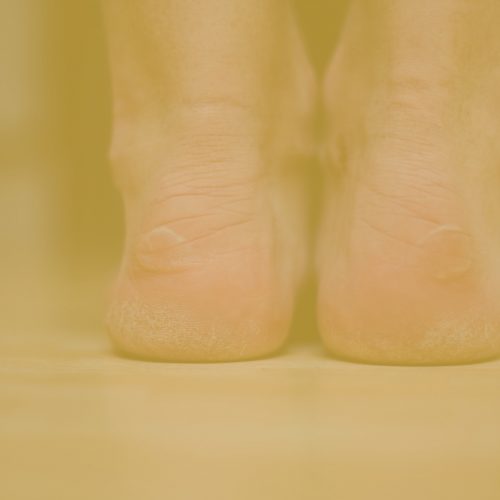Neuropathy is a medical condition characterised by damage or dysfunction of one or more nerves, typically resulting in numbness, weakness, pain, and altered function. While the video highlighted several causes of neuropathy, such as diabetes, alcoholism, malnutrition, and exposure to heavy metals, this article will delve deeper into the topic, exploring additional causes, symptoms, and management strategies for neuropathy.
Causes of Neuropathy
Neuropathy, a condition resulting from damaged or dysfunctional nerves, can arise due to various reasons.
- Diabetes: Diabetes is a prevalent cause of neuropathy, specifically peripheral neuropathy. High blood sugar levels associated with diabetes can damage nerves over time, primarily affecting the legs and feet, leading to pain, numbness, and weakness.
- Alcoholism and Malnutrition: Chronic alcohol consumption and malnutrition can lead to neuropathy by depleting the body of essential nutrients necessary for nerve health, such as B vitamins, causing nerve damage and subsequent symptoms like tingling and numbness.
- Direct Trauma or Injury: Direct injuries to the spine, legs, or other body parts can lead to neuropathy by impacting the nerves in the affected areas. This can result from accidents, falls, or fractures, leading to nerve compression or damage.
- Hereditary Conditions: Genetic disorders like Charcot-Marie-Tooth disease can cause neuropathy due to inherited abnormalities in nerve structure or function, leading to muscle weakness and loss of sensation, primarily in the feet and legs.
- Immune Conditions or Illnesses: Autoimmune diseases, where the body’s immune system attacks its tissues, can lead to neuropathy. Conditions like lupus and rheumatoid arthritis can cause inflammation and damage to the nerves, resulting in various neuropathic symptoms.
- Exposure to Toxins and Heavy Metals: Exposure to toxic substances and heavy metals like lead and mercury can damage nerve tissues, leading to neuropathy. Occupational exposure to these substances is a common risk factor, and it can result in progressive nerve damage if not addressed.
- Metabolic Conditions: Metabolic imbalances, such as those seen in thyroid dysfunction, kidney disease, or liver disease, can lead to neuropathy by affecting the body’s normal metabolic processes, which can indirectly impact nerve health and function.
- Medications and Chemotherapy: Certain medications, particularly chemotherapy drugs used to treat cancer, can have neuropathy as a side effect. These drugs can be toxic to nerves, leading to symptoms like pain, numbness, and tingling.
- Vitamin Deficiencies: Deficiencies in essential vitamins like B12, B6, and E can lead to nerve damage and neuropathy. These vitamins are crucial for nerve health and function, and their deficiency can lead to a range of neuropathic symptoms.
- Infections: Some infections, including bacterial infections like Lyme disease and viral infections like shingles, can cause neuropathy by directly infecting nerve tissues or by triggering immune responses that damage nerves.
Understanding the diverse causes of neuropathy is crucial for preventing, detecting, and appropriately managing this condition. Whether it is managing underlying conditions like diabetes, avoiding exposure to toxins, or ensuring adequate intake of essential vitamins, addressing the root causes can help in mitigating the risk and impact of neuropathy. Regular monitoring and medical consultations are vital for individuals at risk, ensuring timely interventions and management strategies to prevent further nerve damage and alleviate symptoms.
Symptoms of Neuropathy
Neuropathy, with its myriad causes, manifests through various symptoms that can significantly impact an individual’s quality of life.
1. Tingling or Burning Sensation
One of the initial and most common symptoms of neuropathy is a tingling or burning sensation, usually experienced in the extremities like hands and feet. This sensation can be intermittent or constant and is often described as “pins and needles.” It can indicate damage to the sensory nerves and may escalate to more severe symptoms if left unaddressed.
2. Sharp, Jabbing Pain
Neuropathy can cause sharp, stabbing, or shooting pain, often severe and distressing. This pain can be sporadic or persistent and is typically exacerbated at night. It can significantly impact daily activities and sleep quality, necessitating medical intervention for pain management and relief.
3. Extreme Sensitivity to Touch
Individuals with neuropathy often experience heightened sensitivity to touch, a condition known as allodynia. Even the slightest touch, like the brush of clothing against the skin, can trigger intense pain. This heightened sensitivity can be particularly challenging to manage and can affect an individual’s ability to perform routine tasks.
4. Muscle Weakness and Paralysis
Neuropathy can lead to muscle weakness, affecting mobility and coordination. In severe cases, nerve damage can result in paralysis of the affected area, significantly impacting an individual’s independence and quality of life. Physical therapy and rehabilitation can be crucial in managing these symptoms and preventing complications.
5. Lack of Coordination and Falling
Damage to the motor nerves can result in a lack of coordination and balance, leading to frequent falls and accidents. This lack of coordination can make it difficult for individuals to perform activities that require precision and can increase the risk of injuries due to falls.
6. Numbness, Especially in the Hands or Feet
Numbness is a common symptom of neuropathy, often occurring in the hands and feet. It can lead to a loss of sensation, making it difficult to feel pain, temperature, or changes in pressure. This lack of sensation can be dangerous as it increases the risk of unnoticed injuries and infections.
Management and Treatment
Managing neuropathy involves addressing its underlying causes, alleviating symptoms, and preventing further nerve damage.
1. Lifestyle Changes
Adopting a healthy lifestyle is foundational in managing neuropathy. Regular exercise, a balanced diet rich in vitamins and nutrients, and moderation in alcohol consumption can prevent the progression of neuropathy and alleviate symptoms. Smoking cessation is also crucial as it can improve circulation, benefiting nerve health. Maintaining optimal body weight and managing stress effectively are also integral components of lifestyle modification for neuropathy management.
2. Medications
Medications play a crucial role in managing the symptoms of neuropathy. Over-the-counter pain relievers can alleviate mild symptoms, while prescription medications, including anti-seizure drugs and antidepressants, can help manage more severe pain and other neuropathic symptoms. Topical treatments like capsaicin cream can also provide relief from localised pain. However, it is essential to use medications judiciously and under medical supervision due to potential side effects and interactions.
3. Physical Therapy
Physical therapy is pivotal in improving mobility, strength, and function in individuals with neuropathy. It can help in reducing pain and discomfort through exercises, stretches, and other therapeutic interventions. Physical therapy can also aid in improving balance and coordination, reducing the risk of falls and injuries, and enhancing overall quality of life.
4. Regular Monitoring and Management of Underlying Conditions
Managing underlying health conditions is crucial in preventing further nerve damage. For instance, maintaining blood sugar levels within the target range is essential for individuals with diabetic neuropathy. Regular monitoring and medical management of conditions like thyroid disorders, kidney disease, and vitamin deficiencies are also vital in controlling the progression of neuropathy and managing its symptoms effectively.
5. Alternative Therapies
Alternative therapies like acupuncture can be beneficial in managing neuropathy symptoms by stimulating nerve function and reducing pain. Biofeedback can help in controlling physiological functions like heart rate and muscle tension, aiding in pain management. Relaxation techniques such as meditation and deep-breathing exercises can also alleviate stress and improve overall well-being, contributing to better neuropathy management.
Managing neuropathy requires a multifaceted approach, combining lifestyle modifications, medications, physical therapy, regular monitoring, and alternative therapies. Addressing the underlying causes and implementing effective management strategies can significantly improve the quality of life for individuals with neuropathy.
It is crucial for individuals experiencing symptoms of neuropathy to seek medical advice promptly to formulate a personalised management plan, considering the specific causes, symptoms, and individual preferences. Regular follow-ups and adherence to management plans are essential to monitor progress and adjust treatment strategies.
Conclusion
Neuropathy is a complicated ailment that can have many different origins, including diabetes, alcoholism, genetic problems, and immune system disorders. It is essential to have a solid understanding of the causes and symptoms in order to make an accurate early diagnosis and begin treatment.
Alterations to one’s way of life, medical treatment, physical therapy, and alternative treatments can each play a part in the management of neuropathy symptoms and the improvement of one’s quality of life for people who are impacted by the condition. In order to stop any more nerve damage from occuring, it is essential to do regular monitoring and treatment of any underlying disorders.










